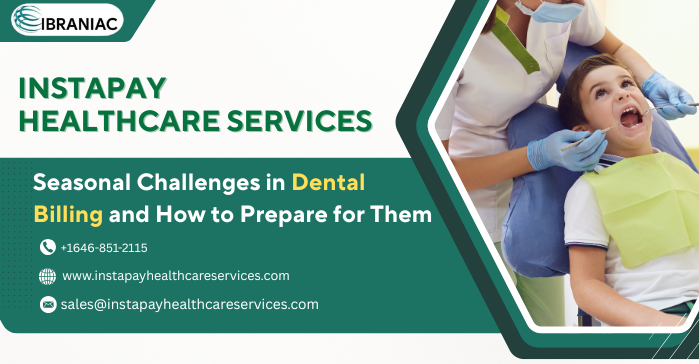
Seasonal Challenges in Dental Billing and How to Prepare for Them
by admin |Aug 11th, 2025| 9 comments,
For dental practices, the year isn’t just divided by calendar months it’s shaped by patient behaviors, insurance deadlines, and seasonal fluctuations. These patterns can create both opportunities and headaches when it comes to managing your revenue cycle. Understanding the seasonal challenges in dental billing and working with dental billing experts can help practices navigate these predictable waves while maintaining smooth operations and steady cash flow.
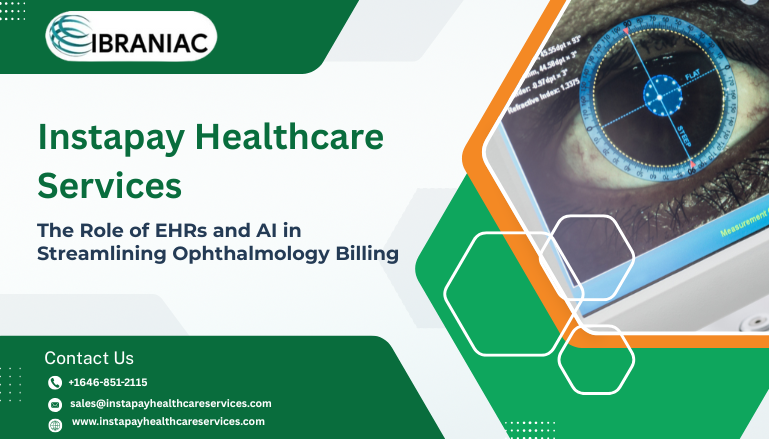
Ophthalmology billing is one of the most complex areas of medical revenue cycle management. From its intricate diagnostic tests to a combination of medical and surgical services it encompasses, the ophthalmology billing process requires precision, compliance, and efficiency. Many practices, however, still struggle with delayed payments, high denial rates, and administrative burdens. Thankfully, technology is transforming this landscape.

Bill for Specialty Optometry Services (e.g., Glaucoma, Dry Eye) in Pennsylvania With Ease
by admin |July 29th, 2025| 9 comments,
Getting paid on time is a challenge many dental practices face, especially in a complex insurance landscape like Florida's. Between evolving payer policies, strict documentation requirements, and varying coverage rules, it’s no surprise that pre-authorizations and denials remain the biggest roadblocks in dental revenue cycles. Fortunately, there are proven strategies that can help Florida dentists streamline approvals and minimize denials, leading to faster reimbursements and fewer billing headaches.

Bill for Specialty Optometry Services (e.g., Glaucoma, Dry Eye) in Pennsylvania With Ease
by admin |July 29th, 2025| 9 comments,
Optometry practices in Pennsylvania today are seeing more patients with complex eye conditions like glaucoma, dry eye syndrome, macular degeneration, and diabetic retinopathy. These specialty services are vital for patient health but billing for them correctly is challenging. With the growing scrutiny of insurance claims and evolving payer rules, many optometrists struggle to secure proper reimbursement for the advanced care they deliver.

For mental health providers across the USA, an audit notice comes with a daunting feel but it doesn’t have to be. With proper preparation, providers can tackle mental health billing audits confidently and even use it as an opportunity to strengthen their processes.
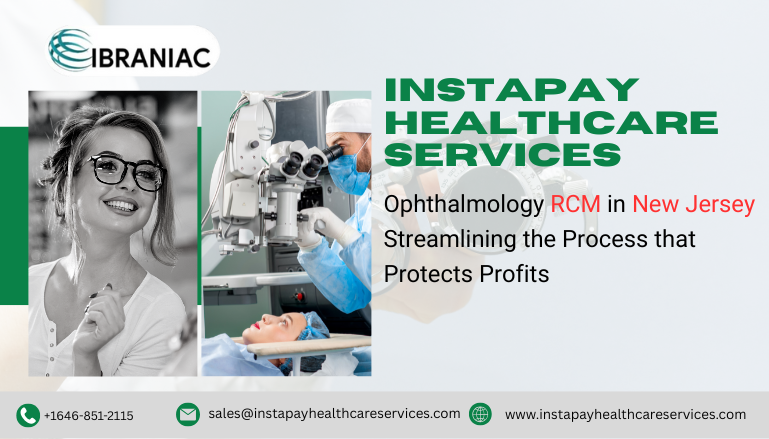
Ophthalmology RCM in New Jersey: Streamlining the Process that Protects Profits
by admin |July 21st, 2025| 9 comments,
In the high-stakes world of eye care, ophthalmology practices in New Jersey are facing mounting pressure to provide top-tier patient care while maintaining strong financial performance. With complex insurance guidelines, overlapping vision and medical billing, and rapidly changing payer expectations, efficient Revenue Cycle Management (RCM) is no longer optionalit’s essential.

Improve Patient Experience Through Efficient Billing Practices in New Jersey Chiropractic Centers
by admin |July 14th, 2025| 9 comments,
In today’s competitive healthcare landscape, patient experience is just as important as the quality of care. For chiropractic practices in New Jersey, creating a smooth, stress-free billing process is a key way to improve satisfaction and build loyalty. Inefficient billing not only delays payments but also frustrates patients who may already be dealing with pain and stress. That’s where partnering with New Jersey’s chiropractic billing specialist can make all the difference.
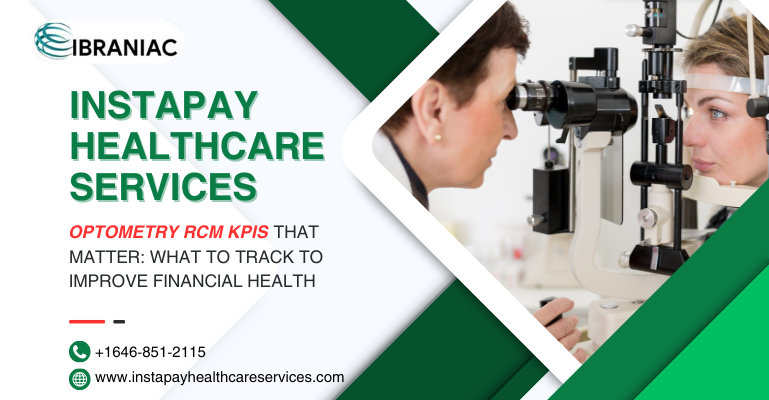
Optometry RCM KPIs That Matter: What to Track to Improve Financial Health
by admin |July 11th, 2025| 9 comments,
Running a successful optometry clinic is about more than just delivering exceptional eye care it’s about ensuring that your revenue cycle runs just as smoothly. With increasing payer complexity and strict documentation standards in the USA, having a well-optimized billing process is crucial. This is where understanding and tracking the right Optometry RCM (Revenue Cycle Management) KPIs comes in.

What New Jersey Dental Plans Expect from Your Claims And How to Stay Ahead
by admin |July 9th, 2025| 9 comments,
When it comes to dental billing in New Jersey, success isn’t just about submitting claims it’s about submitting the right claims, in the right way, to the right payers. With major insurers like Horizon Blue Cross Blue Shield of New Jersey, Delta Dental NJ, and Aetna dominating the landscape, understanding their expectations is critical to keeping your revenue flowing and your stress levels low.

In the fast-paced world of surgical care, efficiency is everything. From scheduling to post-op recovery, every stage must be coordinated with precision and the billing department is no exception. Among the most critical steps in the revenue cycle is payment posting, a process that directly impacts cash flow, claim resolution, and financial transparency. For high-volume surgical centers, where margins are tight and patient throughput is high, getting payment posting right is non-negotiable.
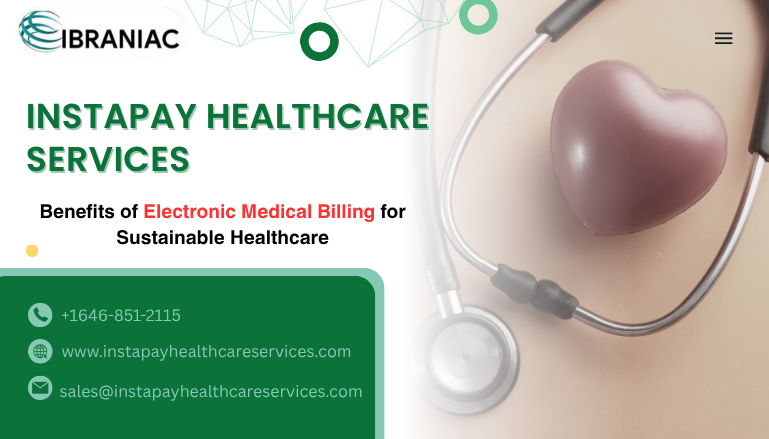
Benefits of Electronic Medical Billing for Sustainable Healthcare
by admin |July 07th, 2025| 9 comments,
In today’s fast-evolving healthcare environment, providers are under growing pressure to deliver better outcomes while keeping operational costs and environmental impact in check. One of the most effective and often overlooked ways to support this goal is by adopting electronic medical billing. As the industry shifts toward sustainable healthcare solutions, electronic billing offers a powerful intersection of efficiency, accuracy, and environmental responsibility.
Prevention Over Correction: How Proactive RCM Saves New York Dental Practices Time
by admin |July 3rd, 2025| 9 comments,
When it comes to managing a dental practice in a fast-paced state like New York, waiting to fix revenue problems after they arise can be both costly and inefficient. Instead, adopting a proactive approach to dental practice revenue cycle management in New York helps practices safeguard their cash flow and streamline operations.

Boosting Reimbursements in New York: 5 Dental Billing Tips That Actually Work
by admin |July 2nd, 2025| 9 comments,
For dental practices in the Empire State, navigating the reimbursement maze is a daily challenge. Between complex payer policies, coding updates, and patient coverage changes, even small billing errors can lead to major revenue loss. That’s where working with a trusted dental billing company in New York can make all the difference.
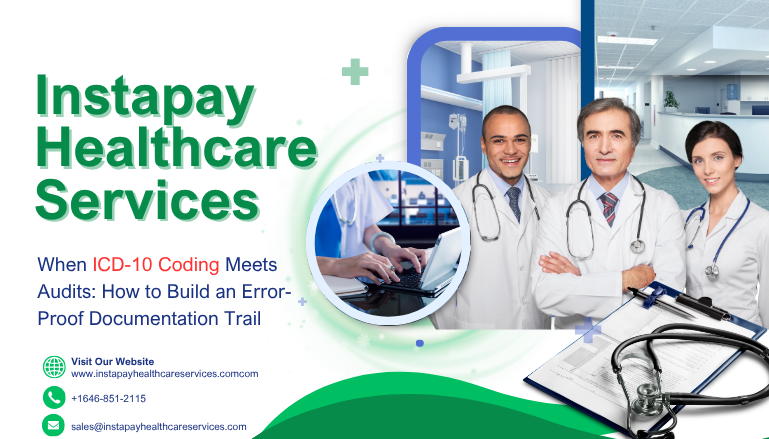
When ICD-10 Coding Meets Audits: How to Build an Error-Proof Documentation Trail
by admin |June 30th, 2025| 9 comments,
Audits are no longer rare occurrences they're a constant threat for healthcare providers across the U.S. Whether prompted by payers, Medicare contractors, or internal compliance checks, documentation and coding errors are among the top reasons claims get flagged. For practices relying on fast, accurate reimbursement, this makes ICD-10 accuracy non-negotiable.

From SOAP Notes to Reimbursement: Documentation Mistakes That Hurt Chiropractic Revenue in NJ
by admin |June 27th, 2025| 9 comments,
In the world of chiropractic care, thorough documentation isn't just good practice it's essential for revenue. Across New Jersey, providers are facing increasing scrutiny from payers, and even small gaps in charting can lead to denials or audits. As New Jersey’s chiropractic billing specialist, Instapay Healthcare Services has seen firsthand how poor documentation, especially in SOAP (Subjective, Objective, Assessment, Plan) notes, affects reimbursement.
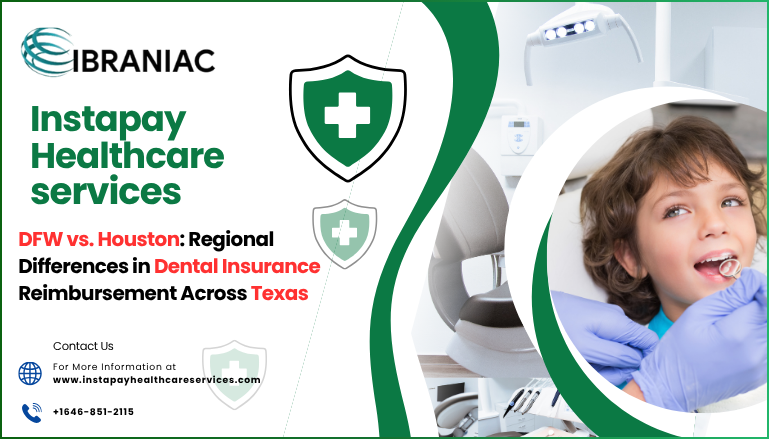
DFW vs. Houston: Regional Differences in Dental Insurance Reimbursement Across Texas
by admin |June 26th, 2025| 9 comments,
Navigating vision insurance is tricky nationwide but for eye care providers in Washington, it’s an entirely different challenge. Between plan overlaps, Medicaid quirks, and carrier-specific rules, billing for optometric services in the Evergreen State demands a fine-tuned revenue cycle process.

Why Washington's Vision Plans Are Harder to Navigate Than You Think Billing Tips for Optometrists
by admin |June 23rd, 2025| 9 comments,
Navigating vision insurance is tricky nationwide but for eye care providers in Washington, it’s an entirely different challenge. Between plan overlaps, Medicaid quirks, and carrier-specific rules, billing for optometric services in the Evergreen State demands a fine-tuned revenue cycle process.

PPO Downgrades in Florida: Coding Tactics That Protect Your Revenue
by admin |June 23rd, 2025| 9 comments,
Navigating the world of PPO dental plans in Florida isn’t just about submitting claims it’s about understanding how downgrades can silently drain your revenue. Many dental practices are blindsided when insurance carriers reimburse based on the least expensive alternative treatment (LEAT), rather than what was actually provided. In Florida’s PPO-heavy environment, this is more than a minor inconvenience it’s a recurring revenue leak.
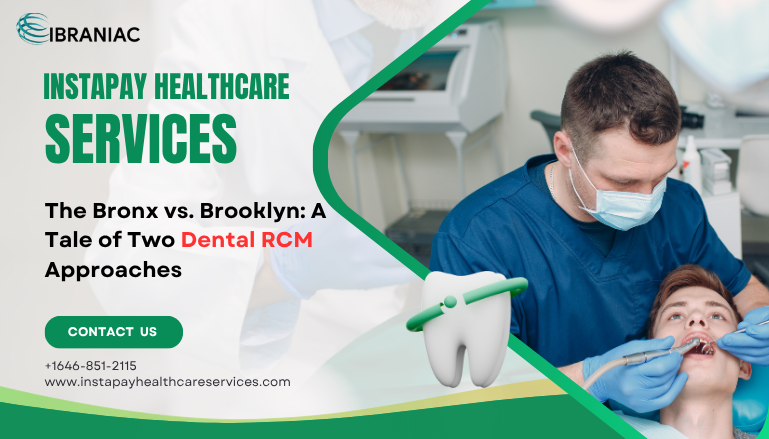
When it comes to dental RCM in New York, it’s clear that no two boroughs operate the same. While they may share the same state policies and CDT codebooks, practices in The Bronx and Brooklyn face vastly different realities when it comes to collections, patient engagement, and claims processing. Understanding these borough-specific dynamics is essential for providers who want to optimize their revenue cycle and remain competitive.

Family therapy plays a crucial role in supporting mental health, but billing for it especially in New Jersey is far from straightforward. From misused CPT codes to payer-specific documentation requirements, even experienced providers can find themselves facing denials, delays, or audits. In this post, we break down the risks of billing CPT code 90847, explain common modifier mistakes, and shed light on how expectations vary across payers.

From Dallas to Del Rio: How Regional Payer Policies Affect Your Dental Reimbursements in Texas
by admin |June 16 th, 2025| 9 comments,
If you’re a dental provider in Texas, you already know that insurance doesn’t play by the same rules everywhere. What gets reimbursed quickly in Dallas might face delays or outright denial in Del Rio. These regional inconsistencies make dental billing in Texas anything but straightforward. And when you're juggling patient care, staff management, and compliance, navigating these differences can quietly erode your bottom line.

Washington’s Push Toward Value-Based Care: What It Means for Optometry RCM
by admin |June 13 th, 2025| 9 comments,
Washington state has been steadily moving toward a value-based care (VBC) framework emphasizing outcomes over volume, coordination over isolation, and cost-effectiveness over fee-for-service. While primary care and hospitals have taken center stage in this transition, optometrists in Washington are beginning to feel the ripple effects. From accountable care organizations (ACOs) to patient-centered medical homes (PCMHs) and risk-sharing contracts, these evolving models present both challenges and opportunities for the future of optometry RCM for Washington practices.

Florida’s Dental DSO Boom: What Solo Practices Need to Know About Billing to Compete
by admin |June 12 th, 2025| 9 comments,
The dental industry in Florida is undergoing a major shift. Dental Support Organizations (DSOs) are expanding rapidly across the state, offering dentists the chance to focus solely on clinical care while a corporate team handles everything from marketing to revenue cycle management. For solo and small group practices, this trend presents a growing challenge especially when it comes to billing.

Glaucoma Screenings in Washington: Are You Compliant with State and Medicare Guidelines?
by admin |June 11 th, 2025| 9 comments,
In Washington, glaucoma isn’t just a growing public health concern it’s also a billing compliance minefield. Ophthalmologists and optometrists who provide screenings must walk a fine line between quality patient care and precise documentation, or risk denials, audits, and even allegations of fraud. While glaucoma is one of the leading causes of irreversible blindness in the U.S., improperly billed screenings can lead to costly mistakes that undermine your practice’s revenue cycle.
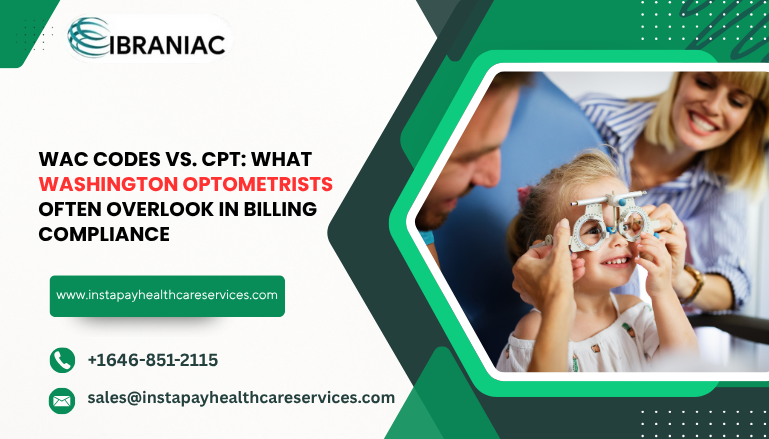
WAC Codes vs. CPT: What Washington Optometrists Often Overlook in Billing Compliance
by admin |June 10 th, 2025| 9 comments,
Optometry practices in Washington face several billing challenges, particularly when it comes to navigating the difference between WAC codes and CPT codes. Many practices unknowingly blur the lines between these coding systems, which can lead to compliance issues, delayed reimbursements, and potential audits. Understanding how each code functions and where they must be used is essential for maintaining airtight optometry billing compliance for Washington practices.

Billing for Adolescent Mental Health Services in New Jersey: What’s Different?
by admin |June 9th, 2025| 9 comments,
Providing mental health care to adolescents in New Jersey comes with unique clinical challenges—and equally unique billing hurdles. Between parental consent laws, minor-specific documentation requirements, and payer-specific policies, providers must navigate a narrow path to ensure proper reimbursement.

Group Therapy Billing in Washington: What You Can and Can’t Do
by admin |June 4th, 2025| 10 comments,
Group therapy is an essential service for many behavioral health practices across Washington, providing crucial support to patients while also maximizing clinician efficiency. But when it comes to billing for these sessions, even experienced providers can run into complications. Missteps with session structure, CPT codes, and modifiers can lead to denials or worse—audits. That’s why understanding the rules around group therapy billing is critical for compliance and financial health.

The Psychology of Chiropractic Reimbursement: What Payers Think When They See Your Claims
by admin |June 2nd, 2025| 10 comments,
In a perfect world, your chiropractic claims would be processed quickly and paid without hassle. But in the real world, things are slightly different. Insurance payers scrutinize chiropractic documentation with a high level of skepticism. Understanding the psychology behind reimbursement decisions can help USA practices submit cleaner claims, reduce denials, and ultimately get paid faster.

Why Medicaid Mental Health Coding Differs Drastically Across States—And What That Means for Providers
by admin |May 30th, 2025| 10 comments,
When it comes to mental health billing in the USA, one of the most complex challenges providers face is navigating the inconsistencies in Medicaid billing guidelines from one state to another. Unlike Medicare, which is federally standardized, Medicaid is administered at the state level. That means each state can—and often does—define its own rules for what’s covered, how services must be documented, and which CPT or HCPCS codes are reimbursable.

AI-Powered Dental Billing: Hype or Real Help for Faster Claim Approvals?
by admin |May 29th, 2025| 10 comments,
In an era where dental practices face growing administrative burdens and tighter insurance scrutiny, AI-powered dental billing is gaining attention. But is it just another tech buzzword—or a genuine solution for streamlining reimbursements for dental practices in the USA?

Why Horizon Blue Cross Is Scrutinizing Ophthalmology Claims in New Jersey—And How to Stay Ahead
by admin |May 28th, 2025| 10 comments,
Ophthalmologists across New Jersey are facing increased scrutiny from Horizon Blue Cross Blue Shield (BCBSNJ), especially when it comes to complex procedure claims. From denied retinal injections to downcoded eye exams, practices are finding that the usual billing playbook no longer guarantees payment. If you're seeing a spike in requests for medical records, pre-authorizations, or inexplicable denials, you're not alone.

When Does Therapeutic Exercise Need a Modifier? Decoding 97110 in Chiropractic Practices
by admin |May 23rd, 2025| 10 comments,
In the world of chiropractic coding in the USA, few codes cause more confusion than CPT 97110—the go-to code for therapeutic exercise. While it seems straightforward, incorrect use or omission of appropriate modifiers can lead to denials, audits, or even overpayment recoupment.

Is Your Dental Billing HIPAA-Secure? Why Washington Practices Must Modernize Now
by admin |May 22nd, 2025| 10 comments,
Cybersecurity might not be the first thing that comes to mind when you think of dental billing in Washington, but it should be. In today’s digital-first world, even small dental practices are prime targets for data breaches, phishing attacks, and HIPAA violations. One slip—an unencrypted email, a stolen laptop, or an outdated server—can cost your practice thousands in fines and lost revenue.

How to Bill for Cosmetic vs. Medically Necessary Procedures in Florida Without Getting Penalized
by admin |May 21st, 2025| 10 comments,
When it comes to dental billing in Florida, knowing where to draw the line between cosmetic and medically necessary procedures isn’t just a matter of compliance—it’s a matter of survival. Dental practices that misclassify treatments or use incorrect CDT codes risk denied claims, patient disputes, and even audits. Understanding Florida’s dental billing rules is essential for ensuring accurate reimbursement and protecting your practice from penalties.

Out-of-Network Behavioral Health Billing in Washington: A Legal and Financial Minefield
by admin |May 20th, 2025| 10 comments,
Navigating out-of-network (OON) behavioral health billing in Washington is like walking a tightrope. Between balance billing restrictions, insurer pushback, and rising patient confusion, it’s easy for even experienced providers to get caught in costly legal or operational traps.

Cutting Dental Claim Rejections in the USA Without Changing Your Clearinghouse
by admin |May 19th, 2025| 10 comments,
If your dental office is seeing a growing pile of denied claims, you’re not alone. Dental claim rejections are a widespread challenge, and they often lead to delayed revenue, increased staff workload, and frustrated patients. While many assume that switching to a new clearinghouse will solve the problem, that’s rarely the case.

Are You Billing Too Much for OCTs? California Payers Are Watching
by admin |May 17th, 2025| 10 comments,
Optical Coherence Tomography (OCT) has become a vital tool in diagnosing and managing retinal conditions, glaucoma, and other eye diseases. But for California optometrists, over-reliance on OCT billing, especially without clear documentation, triggers unwanted payer scrutiny.

Out-of-Network in New Jersey? Know About Balance Billing and Compliance
by admin |May 15th, 2025| 10 comments,
Navigating out-of-network billing can be a challenge for dental providers in New Jersey. Between strict state regulations and ever-evolving insurance rules, practices that aren't careful risk legal trouble and lost revenue. If you're providing services to patients outside their insurance networks, it's essential to understand how balance billing laws work—and how partnering with a knowledgeable dental billing specialist can protect your practice.

From Miami to Jacksonville: Regional Billing Pitfalls Florida Mental Health Clinics Keep Repeating
by admin |May 14th, 2025| 10 comments,
When it comes to mental health billing in Florida, there’s no such thing as one-size-fits-all. From Miami to Jacksonville, regional differences in payer behavior and documentation expectations can trip up even experienced providers. For clinics delivering behavioral and mental health services, understanding these local variations is key to avoiding denials, reducing delays, and maximizing reimbursements.

New Jersey's No-Fault Auto Laws Impact On Dental Medical Billing for TMJ and Trauma Cases
by admin |May 13th, 2025| 10 comments,
When a car accident happens, few people think about their dentist. But for many in the state like New Jersey, dental injuries—especially temporomandibular joint (TMJ) disorders and maxillofacial trauma—are common aftereffects of collisions. As dentists in New Jersey, it is important to know how the state’s no-fault auto insurance laws intersect with medical billing. These can make a major difference in both claim success and patient care.
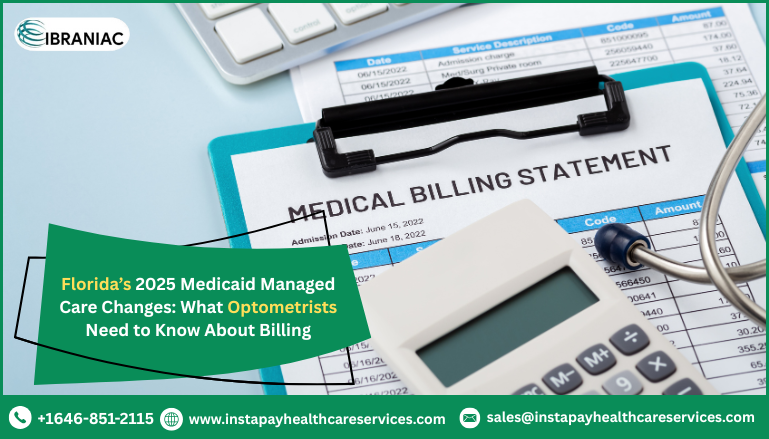
Florida’s 2025 Medicaid Managed Care Changes: What Optometrists Need to Know About Billing
by admin |May 12th, 2025| 10 comments,
The landscape of Medicaid billing for optometry services in Florida is about to change. In 2025, the state is rolling out updated Medicaid Managed Care (MMC) policies that will significantly impact how optometrists document, code, and submit claims. While these changes aim to improve access and streamline care coordination, they also introduce new billing complexities that providers can’t afford to overlook.

Billing for Telepsychiatry in Pennsylvania: What Changed After the Public Health Emergency?
by admin |May 8th, 2025| 10 comments,
The COVID-19 Public Health Emergency (PHE) transformed the way psychiatry was delivered across the United States—especially in Pennsylvania. As in-person visits declined, telepsychiatry rapidly became a lifeline for patients and providers alike. But with the PHE officially ending in May 2023, many temporary billing flexibilities began to expire or shift, leaving

Optometry Audits in Texas: What Triggers Them and How to Stay Off the Radar
by admin |May 7th, 2025| 10 comments,
Texas optometrists are no strangers to audits. With the growing scrutiny from both public and private payers, many practices are finding themselves under the microscope. While audits can feel intimidating, understanding what triggers them and how to proactively prevent them can keep your practice financially secure and in compliance.

Billing Challenges for Out-of-Network Chiropractors in California’s Urban Centers
by admin |May 6th, 2025| 10 comments,
Chiropractic care remains a critical part of pain management and wellness in California’s bustling urban areas from Los Angeles to San Diego to San Francisco. Yet many chiropractors in these high-cost markets choose to remain out-of-network (OON) with insurance providers due to low reimbursement rates and restrictive contracts. While this allows for more control over fees and treatment plans, it also opens the door to a range of billing challenges that can threaten a practice’s financial stability.

Medical Necessity in the Garden State: What New Jersey Payers Expect in Behavioral Health Notes
by admin |May 2nd, 2025| 10 comments,
In New Jersey’s ever-tightening reimbursement environment, behavioral health providers face increasing pressure to prove that their services meet the standard of medical necessity. It’s no longer enough to document symptoms payers are looking for evidence-based justification for every visit, every intervention, and every level of care. Lack of detail in clinical notes can lead to claim denials, audits, and reimbursement delays.

Smart Strategies for Dermatology Billing
by admin |January 28, 2025 | 5 comments,
The complex nature of dermatology billing comes from the constantly changing insurance policies, billing, and coding guidelines. With complicated codes, varying payer policies, and a constant stream of updates in the healthcare regulations, dermatology practices struggle to maintain accuracy, and profitability in practice’s billing process. Third-party medical billing and coding services providers, like Instapay Healthcare Services, area of focus is streamlining dermatology billing.
